As LPG export duty was introduced in August, how will it influence your business? Will export flows be re-directed to the internal market characterised by currently high prices?
Russia has surplus LPG in the market, so it cannot adsorb the entire export volume even when in high demand. As to our supplies, our first priority is to perform obligations under the existing contracts with domestic consumers and those in the global markets. As regards spot volumes, they are distributed across markets based on the economic viability of sales.
SIBUR conducts regular customer surveys. What is their objective and what are the initiatives based on them?
SIBUR collaborates with GFK to conduct annual customer satisfaction surveys, with all customers involved in the reporting year's transactions invited to participate. Driven by SIBUR's commitment to tailor its processes and services to customer needs, the surveys assess a number of key indicators, such as the Net Promoter Score (NPS) and customer loyalty and satisfaction.
Another element of the survey process is in-person meetings, where the Company discusses each point of contact with customers to learn about their experience and represent it as a customer journey map. Interviewees provide feedback on the sales chain touchpoints and cite examples of the industry's best practices.
Detailed information gathered during such interviews is used to draft long-term customer focus plans. Importantly, the discussions reveal not just shortcomings, but also the touchpoints prized by customers as industry best practices.
This format enables face-to-face dialogue with the senior management and owners of our customer companies, providing us with sound and comprehensive feedback while highlighting our utmost attention to their needs.
During the 2018 FIFA World Cup, how will the temporary limits on production and traffic movement be impacting your product shipments?
SIBUR has no plans to suspend its production and prepared a dedicated internal document to this end: aligned with the relevant decree of the Russian Government, it explains why the operations cannot be suspended, underpinned by process-related and financial considerations, and also describes additional safety measures planned at our facilities.
What are the advantages of factoring?
In addition to a wide range of products, we offer our clients specifically designed financial solutions.
Today, one of the most popular financial instruments is non-recourse factoring. As a deferred payment scheme, factoring offers a number of advantages over other payment methods:
- payment on delivery rather than in advance or further extension of payment deferrals;
- reduced cash gaps (temporary shortage of cash required to finance immediate expenses) through increased flexibility in cash flow management; - larger purchase volumes and stronger market position with the minimum of own resources engaged;
- access to additional third-party financing (factoring transactions are not treated as debt by banks, so companies have no problem raising money for working capital or capital expenditures);
- simple paperwork, no need to make material amendments to the existing supply agreements.
SIBUR has long-term relationships with a pool of partner banks to secure the best factoring terms for its clients and quickly respond to key market trends.
Follow the next three steps if you choose to opt for non-recourse factoring:
1. contact your dedicated client manager and provide a minimum set of documents (profit and loss statement and balance sheet for the previous year and as at the last reporting date);
2. on factor’s request, provide a full set of electronic documents (financial statements for the last two years and account breakdown as at the last reporting date);
3. await the factor's decision, sign the factoring notice of assignment and, depending on the selected terms, an addendum with the factor as part of the framework agreement signed by SIBUR, along with a schedule containing payment deferral terms.
Why do we see gas flaring at SIBUR’s production sites? What substances are burnt this way? If a gas flare forms soot, does it mean something goes wrong at the production site?
Used at most petrochemical facilities, gas flares are an integral part of processing units for hydrocarbon conversion meant to serve as safety valves. Flares are designed to prevent emission of hydrocarbons, which can be formed at the pre-repair stage or when equipment is purged during commissioning and stoppage. Hydrocarbons burn to decompose into carbon dioxide (СО2) and water vapour.
In essence, a flare is like an ordinary gas ring used in stoves. In case of excessive emissions, the flame of a gas flare may increase in size or become sooty, as there is not enough time for all hydrocarbons to combust and they form soot. Soot is an inevitable part of a burning process whether in a flare or campfire. If a gas flare is on and working, it means that production runs smoothly.
What is SIBUR’s approach to naming its production sites?
Most production sites were commissioned in 1940–60s and became part of SIBUR as initially named in late 1990s or early 2000s when the Company expanded its asset base by acquiring brownfield projects.
Today, most sites are named as SIBUR plus geographic location of the site, for example SIBUR Tobolsk, SIBUR Togliatti, SIBUR-Kstovo. The only exception is gas processing plants, as their names are based on the names of their locations (an approach similar to the one applied for refineries and oil and gas fields). SIBUR’s gas processing plants are also grouped together as SiburTyumenGaz.
For customer convenience and for business correspondence purposes, SIBUR uses simplified site names referring to their locations, for instance, such as the Voronezh site and the Tomsk site.
Have you considered other opportunities to optimise the business, such as divesting from your rubber assets or engaging in new projects and partnerships?
Our main focus is on operational excellence and our core business. At the same time, we always look to optimise our portfolio. For us, it is particularly important, as we make major investments and construct new facilities. This changes the role of some products and sites in our business.
On the one hand, the rubber business is becoming less important. This is due to the rapid growth of other businesses through investments. The fundamentals of such businesses are better than of the rubber segment. On the other hand, the rubber business does feature technologies in global demand.
We implement hefty investment initiatives in joint rubber production projects. In 2013, we launched a JV to produce nitrile butadiene rubbers using the capacities of the Krasnoyarsk Synthetic Rubbers Plant (KZSK). Currently, we are building another butyl rubber production site in India jointly with Reliance Industries. In 2017, we will carry on with a number of investment ideas within our Plastics, Elastomers and Organic Synthesis Division.
Seasonal peaks in demand is a well-known problem. Why does not SIBUR warn clients about changes in its supply schedule in advance?
During the seasonal upsurge in demand, BIAXPLEN is not always able to take spot orders in full, especially with soaring client demand.
At the same time, average volume orders are taken at all times without exceptions. SIBUR always sends early notices to clients in case of reduction in supply volumes.
Does BIAXPLEN plan to expand internationally, including through investment?
The strategic reason for SIBUR to enter the BOPP business some years ago was to establish a leading domestic producer that would offer new packaging solutions to the fledgling domestic market, while also increasing overall polymer consumption in the country.
International polymer markets like China and Europe are much more developed than the Russian market, so there is no reasonable integration potential in terms of polypropylene processing in these regions. We are happy to expand our presence overseas by supplying our customers with high-quality Russian-made BOPP films. However, at present, we do not plan to build new capacities.
Does SIBUR plan to expand its sales geography to the Middle East countries, such as Iran?
We have considered supplying selected products to the Middle East, in particular, to Iran. However, its petrochemical industry competes with that of Russia in the global markets as it is gearedto exports. This approach is in line with the national policy of Iran seeking to shift towards exporting products with higher added value instead of basic feedstock. From this perspective, this market offers no export potential.

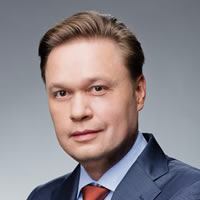
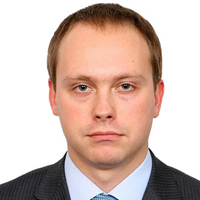
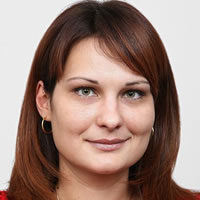
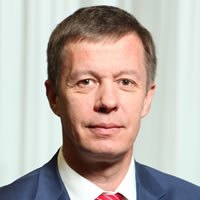




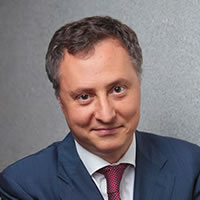
Oleg Makarov
SIBUR’s Management Board member and Executive Director